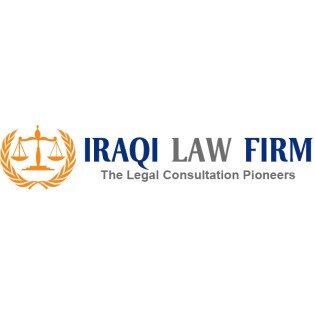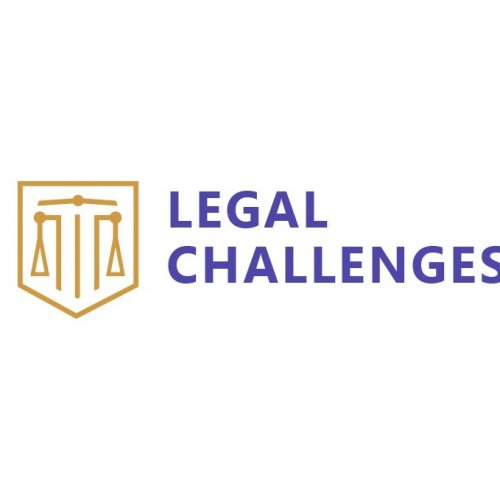Best Public-Private Partnerships (PPP) Lawyers in Baghdad
Share your needs with us, get contacted by law firms.
Free. Takes 2 min.
List of the best lawyers in Baghdad, Iraq
About Public-Private Partnerships (PPP) Law in Baghdad, Iraq
Public-Private Partnerships (PPP) have become a significant method for developing vital infrastructure and delivering public services in Baghdad, Iraq. PPPs are collaborative agreements between government bodies and private sector entities, where both parties share risks, responsibilities, and benefits in the delivery of public projects. In Baghdad, PPPs have been used for projects in sectors including transport, energy, education, health care, and water supply. The government recognizes the efficiency, innovation, and financial resources that private sector involvement can bring to public infrastructure and services. While the concept is not new, the legal framework and policies governing PPPs in Baghdad continue to evolve, emphasizing transparency, accountability, and sustainable development.
Why You May Need a Lawyer
PPP projects in Baghdad are complex, involving multiple layers of regulations, contracts, and negotiations. A lawyer with expertise in PPP can be essential for the following reasons:
- Reviewing and drafting partnership agreements to ensure all parties’ obligations are clearly outlined and protected
- Navigating the tendering and bidding processes for PPP projects
- Advising on risk allocation and dispute resolution mechanisms
- Ensuring compliance with Iraqi laws, local regulations, and international best practices
- Representing clients in negotiations with governmental authorities
- Addressing issues related to land use, environmental permissions, labor laws, and taxation
- Protecting investments and securing financing from local and international sources
Whether you are a private investor looking to engage with the public sector or a public body seeking to attract private investment, having a legal expert can help navigate potential pitfalls and ensure project success.
Local Laws Overview
Public-Private Partnerships in Baghdad operate within a legal and regulatory framework developed at both the national and municipal levels. While Iraq does not have a single, unified PPP law, several key regulations, directives, and sector-specific laws govern PPP arrangements, including:
- Investment Law No. 13 of 2006 and its amendments, which set out general principles for public and private sector collaboration and provide incentives for investors
- Sector-specific legislation for energy, water, construction, and transportation, which often accommodate PPP arrangements
- Procurement regulations that outline bidding requirements and transparency standards for public contracts
- Municipal decisions and local guidelines in Baghdad that may affect zoning, land acquisition, and project approvals
- Ministry of Planning and National Investment Commission guidelines on project selection, feasibility assessment, and risk allocation
Potential partners must also consider international agreements and conventions to which Iraq is a party, especially for projects involving foreign investment. Local legal counsel can clarify which regulations apply to a given project and how to comply with all legal obligations.
Frequently Asked Questions
What types of projects can be developed under PPP in Baghdad?
PPP can be applied to infrastructure projects like roads, bridges, airports, water treatment plants, schools, hospitals, public housing, and more. Almost any project providing public benefit can be considered for PPP development, subject to government approval.
Who can participate in PPP projects in Baghdad?
Both local and international companies may participate in PPP projects, provided they meet eligibility requirements stated in bid documents and comply with Iraqi laws governing foreign investment.
How are PPP contracts typically structured?
PPP contracts can take various forms including Build-Operate-Transfer (BOT), Build-Own-Operate (BOO), lease agreements, or management contracts. The structure depends on the sector, project scope, and risk allocation.
What is the process for bidding on a PPP project?
PPP projects usually involve a competitive bidding process, starting with a public call for expressions of interest or project proposals, followed by prequalification, submission of bids, and selection based on set criteria. Transparency and fair competition are key priorities.
Can foreign investors participate in PPPs in Baghdad?
Yes, foreign investors can participate in PPPs under Investment Law No. 13 of 2006, subject to certain restrictions and requirements such as partnering with local entities or obtaining specific permits.
What are the main risks involved in PPP projects?
Risks include regulatory changes, project delays, financial uncertainties, political instability, and disputes between parties. PPP contracts typically include clauses to allocate these risks fairly.
How can disputes in PPP projects be resolved?
Contracts usually outline dispute resolution mechanisms, which may include mediation, arbitration, or recourse to local courts depending on the agreement of the parties involved.
Are there incentives for private investors in PPP projects?
Yes, the Investment Law and various sectoral laws offer incentives such as tax exemptions, customs facilitation, and land allocation for eligible PPP projects to attract more private investment.
What local authorities oversee PPP projects in Baghdad?
The National Investment Commission and the Baghdad Provincial Investment Commission play significant roles in regulating and approving PPP projects. Relevant ministries and municipal authorities also have oversight based on the project sector.
Is legal representation mandatory for PPP agreements?
While not mandatory, legal representation is highly recommended due to the complexity and long-term nature of PPP contracts, potential disputes, and the need for compliance with a range of laws and regulations.
Additional Resources
For those seeking more information or assistance regarding PPPs in Baghdad, the following resources may be helpful:
- Iraqi National Investment Commission - Offers guidance on investment laws and PPP opportunities
- Baghdad Provincial Investment Commission - Provides project opportunities and support for investors in Baghdad
- Ministry of Planning - Oversees infrastructure strategy and PPP policies at the national level
- Sector-specific ministries such as the Ministry of Construction and Housing or Ministry of Electricity - Frequently manage projects suitable for PPP models
- Local chambers of commerce and industry associations - Can connect investors and offer legal referrals
- Law firms and consultancy services specializing in Iraqi infrastructure and investment law
Next Steps
If you are considering engaging in a Public-Private Partnership in Baghdad, it is essential to:
- Research relevant sectors and project opportunities through governmental and municipal sources
- Identify potential partners or sponsors in the private or public sector
- Engage a qualified lawyer or legal team with experience in PPPs to review contracts, advise on compliance, and navigate the approval process
- Prepare all necessary documentation, including proof of financial capacity and technical ability
- Submit expressions of interest or bids according to the official procedures set for each project
- Maintain ongoing communication with local authorities and stakeholders throughout the project lifecycle
If you need legal advice, begin by consulting a law firm or legal expert with a strong track record in infrastructure and PPP-related matters in Iraq. They can provide tailored guidance, protect your interests, and help ensure your PPP venture is both legally compliant and commercially successful.
Lawzana helps you find the best lawyers and law firms in Baghdad through a curated and pre-screened list of qualified legal professionals. Our platform offers rankings and detailed profiles of attorneys and law firms, allowing you to compare based on practice areas, including Public-Private Partnerships (PPP), experience, and client feedback.
Each profile includes a description of the firm's areas of practice, client reviews, team members and partners, year of establishment, spoken languages, office locations, contact information, social media presence, and any published articles or resources. Most firms on our platform speak English and are experienced in both local and international legal matters.
Get a quote from top-rated law firms in Baghdad, Iraq — quickly, securely, and without unnecessary hassle.
Disclaimer:
The information provided on this page is for general informational purposes only and does not constitute legal advice. While we strive to ensure the accuracy and relevance of the content, legal information may change over time, and interpretations of the law can vary. You should always consult with a qualified legal professional for advice specific to your situation.
We disclaim all liability for actions taken or not taken based on the content of this page. If you believe any information is incorrect or outdated, please contact us, and we will review and update it where appropriate.

















